Morocco’s Ouirgane Valley combines sweet blossom and rose petals with the dizzying power of the gods. This is what it’s like to go off the beaten track in the Atlas Mountains.
See also our guide to planning the perfect Morocco itinerary here.
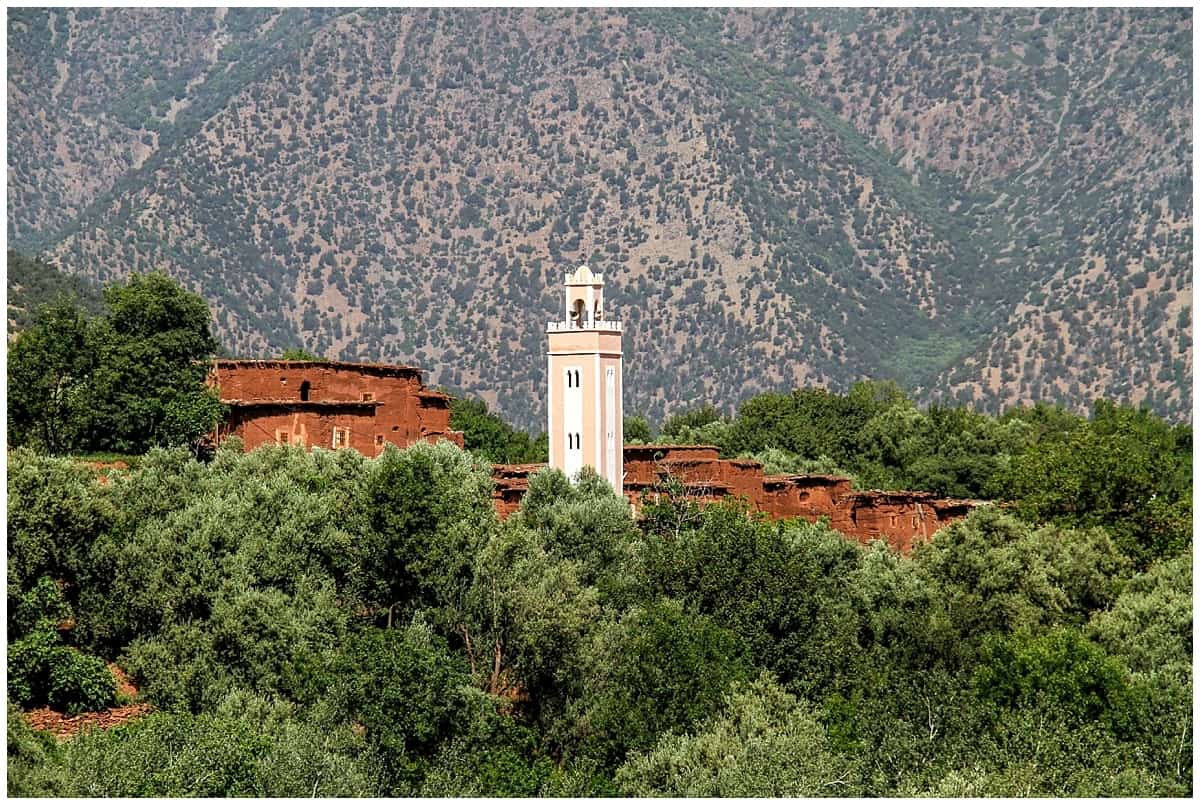
Ouirgane Valley and Hiking in The Atlas Mountains, Morocco
Sometimes I dream that I am falling. Apparently, everyone does. But more often than that, I dream that I am flying, rising, really as the walls of the room grow smaller, the stars sandpaper the sky and I drift up and up, along, beyond. Weightless until caught by the clouds or the distant haze that cloaks the mountains.
Right now, life matches that the crescendo of that dream. The moment where my feet find land and my eyes blink awake. There is snow, I can smell it. There are ripe vines and low hedgerows that stretch across scorched, rust-coloured hills. I see the aged silver of twisting olive groves and hold in my hand more herbs and spices than I can remember or understand.
I’m in the blue sky of the Atlas mountains – and I’m feeling slightly faint.
If you book or buy through the links on this page, we may earn a small commission at no extra cost to you. Cheers.
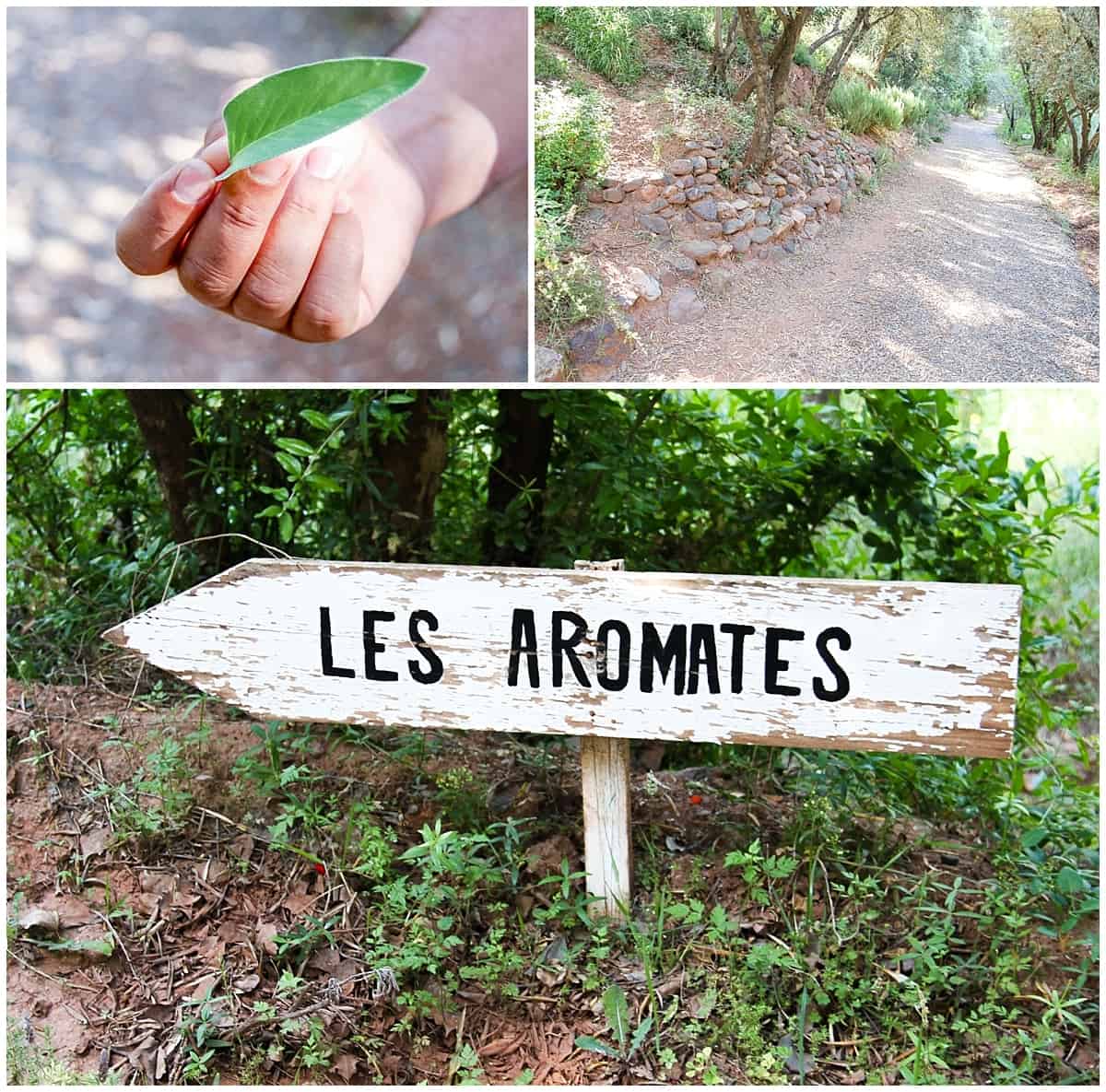
Why They’re Called the Atlas Mountains
My backpack carries water that gains weight with every step and I can’t help but empathise with the god whose name describes this place.
Atlas. My muscles strain and my memory scrambles to recall the French that I know lives somewhere, so that I can talk to the man who walks beside me, Muhammed.
Muhammed is a guide from further down the mountain. He lives at the village not far from the dam, and he points it out to me more than one or two times. His legs are strong, although his knees give him trouble on the downhill parts. He shows me photos of his children, bright digital images that live on his mobile phone.
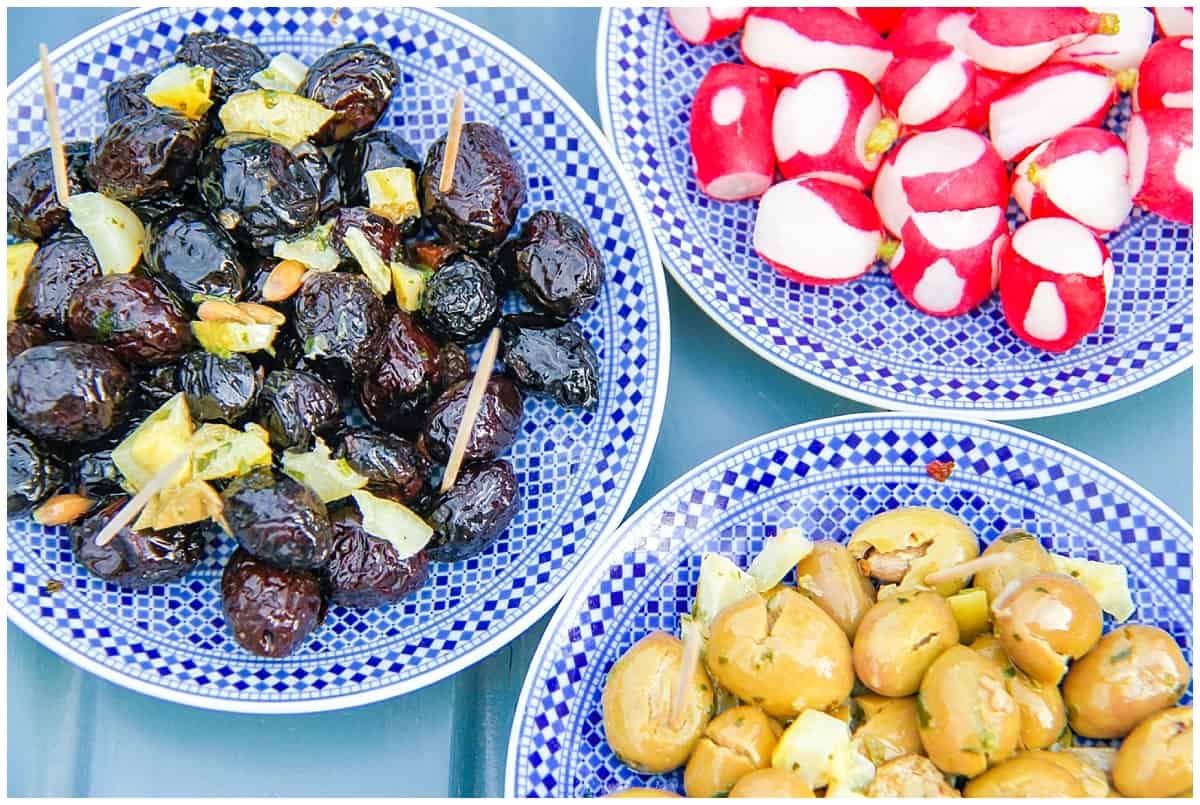
Hiking From La Roseraie
We left La Roseraie this morning, an idyllic little place that isn’t really small but that somehow deserves the word. Rose petals run amok in La Roseraie, with scarlet and peach petals that flutter through the fountains, the walkways, the bathrooms and the dreams of those who come here to sleep.
I lose the name of the first village we pass, but its walls are made of rough-smooth ochre. It creaks and curves with the slope of the mountain and children peer out of windows, past goats and through shadows to watch this strange white woman wandering through.
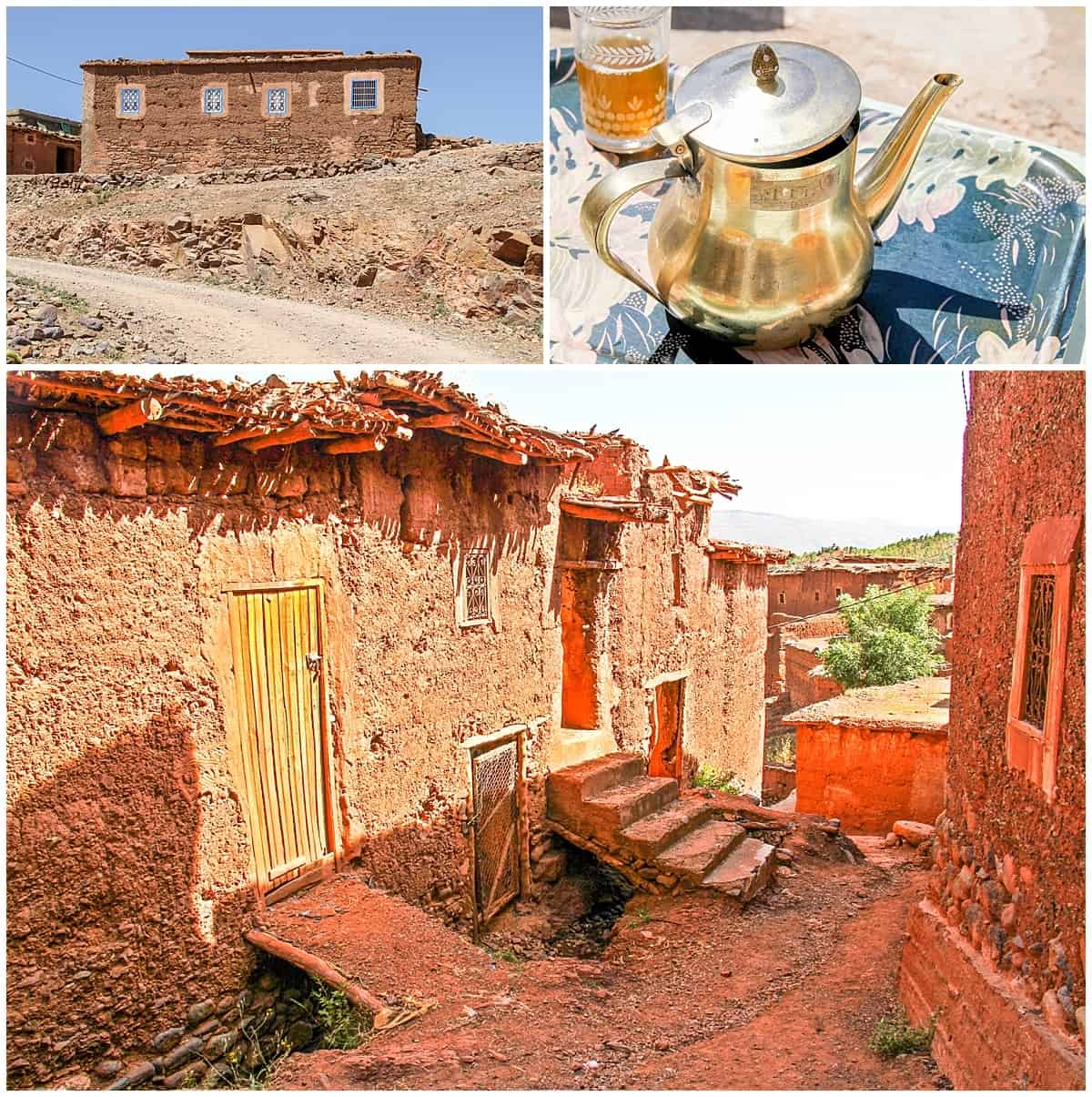
Reaching a Berber Village in the Atlas Mountains
Muhammed wants to continue but I am keen to stay. Childhood, like an atlas, extends across the globe, unhindered by language, clothes or the sight of a dizzy foreigner close to the edge of collapse.
This next ascent should be trivial, but for some reason I find it hard. Perhaps it’s because I’ve spent so long sat down as I drove through Morocco. Perhaps it’s the altitude, the jetlag, the, er, rose petals. Perhaps it’s my age.
I guzzle down some water, mainly to buy myself some time. Muhammed’s dam seems smaller than ever.
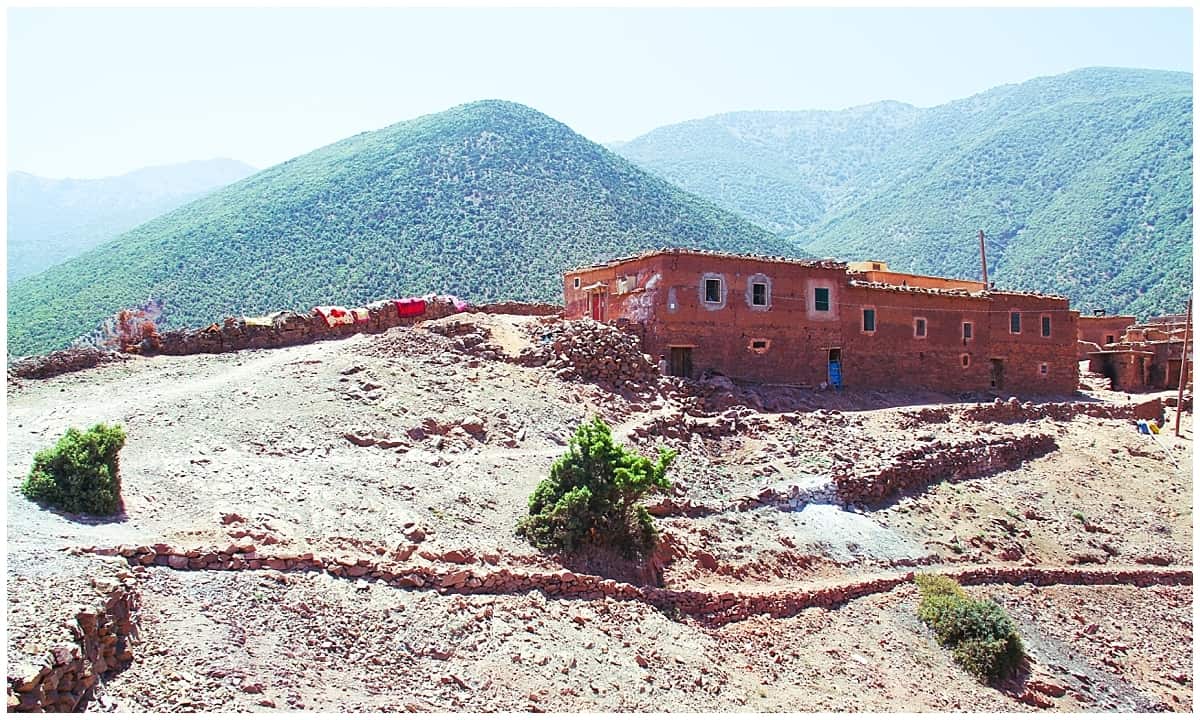
As the soil crunches beneath our feet, my eyes drift towards the peak. We reach another village, where the walls are made of stone instead of mud, ready for the frost and ice that climbs this high in winter.
We pass a man. He invites us to tea.
We accept – and settle on the flat rooftop of his Berber house.
A child appears. She’s about five or six, I’d guess, although age range guestimates are not a strength of mine. She is beautiful, she is interested, she is shy, and she is fascinated. She joins her father, while her mother stays out of sight.
I feel awkward. Unsure, no, un-anything of what the etiquette for this should be.
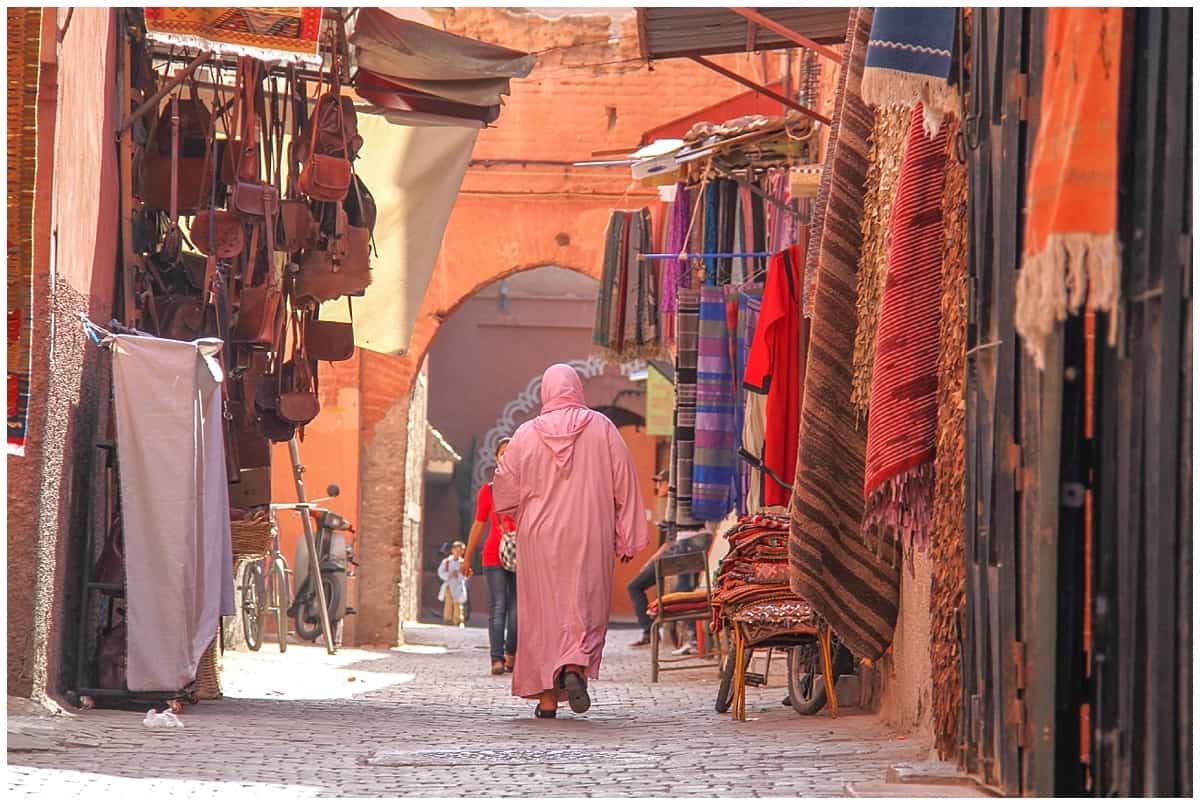
Women in Morocco: What to Wear, How to Behave
Morocco is an Islamic country but I’m finding it hard to discern the rules. Take dress codes, for example. High street shops with lacy bras and string bikinis flourish in downtown Marrakech; yet on the beaches at Oualidia, the women covered up and I only saw the men enter the water.
This morning, when Muhammed suggested I covered my head, I swept a scarf around my skull to hide away my hair. He laughed and rearranged it into a turban with a kind of scarf mullet, leaving my straw hair akimbo. Heatstroke had been his concern; not manners.
So now what? Drinking tea with two men while a girl looks on in silence and her mother hides downstairs. Perhaps it’s nothing to do with culture or religion. It wouldn’t be the first time people have made excuses to avoid me.
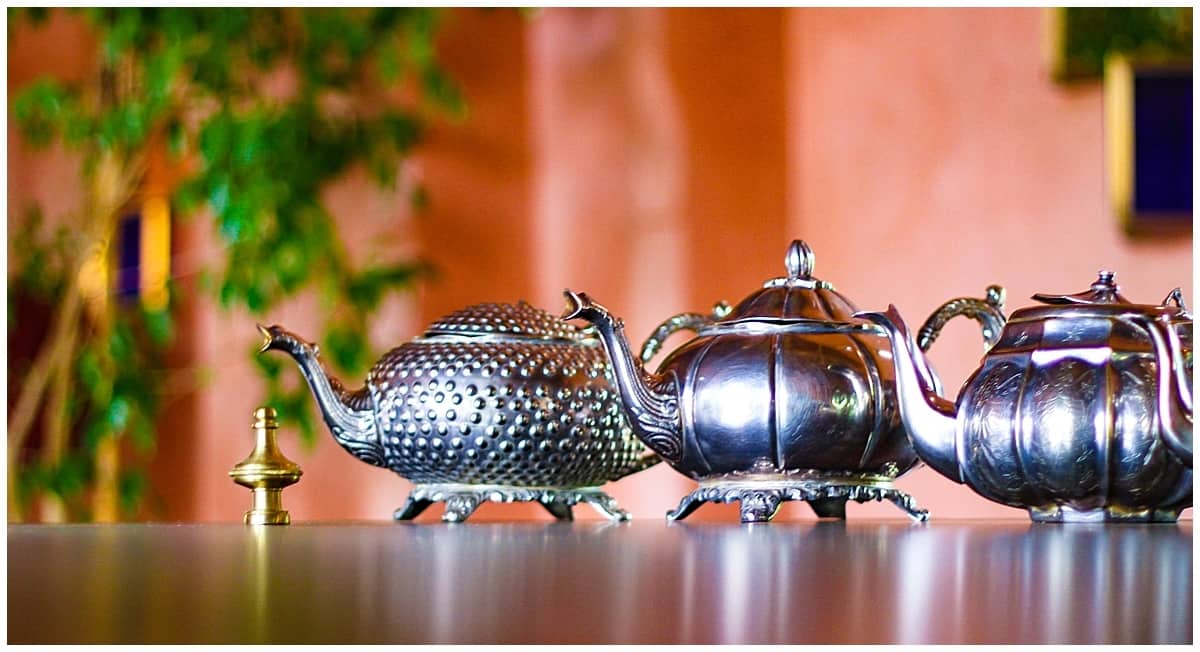
The tea arrives, tasting sweet and bitter, so different to England, yet exactly the same. This tea comes, Muhammed tells me, from China and he adds that Morocco’s the biggest importer of Chinese tea in the world. They add home-grown mint leaves and lashes of sugar and serve it without milk in clear long glasses.
The bread is fresh and flat, stretched apart and dipped in olive oil. The almonds are sweet. The girl is still watching.
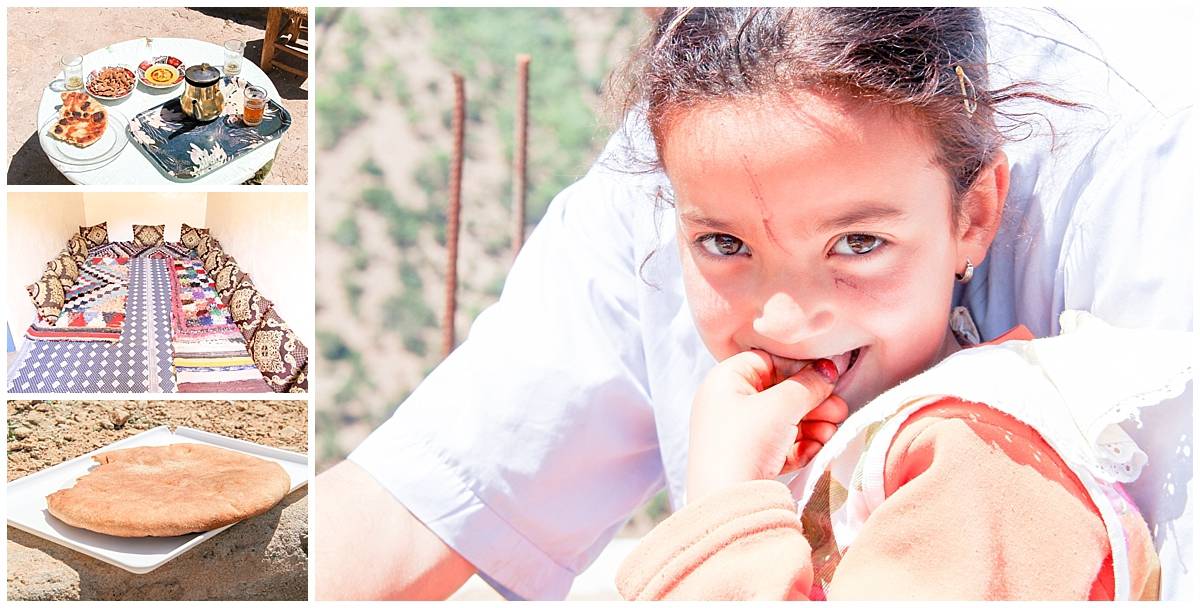
Inside a Berber Home in the Atlas Mountains, Morocco
Afterwards, I’m invited to look around their home. It has a traditional set up. Bare walls downstairs with rugs that cover the floor in woven red, cream and black. A window in the ceiling showers light across the kitchen, glinting in the stove, the utensils and the pots and pans scrubbed clean and lined up in formation.
The woman of the house moves from room to room ahead of me to make sure we never meet. The girl follows me everywhere and then reaches to hold my hand.
Outside, we troop towards the plateau, where we can see Muhammed’s dam, the peppery trees and olive groves and the almighty mass of the Atlas mountains heaving out of the earth.
We’re standing on concrete, the foundations for a new hostel that the village dreams will bring more travellers and more tourists to this little town.
I look across the peaches, figs, lemons, mint, thyme and rosemary. Across to Muhammed’s dam.
Up to the peaks and down to the young girl’s eyes.
I feel a flash of selfishness and the timeless tourism brainteaser.
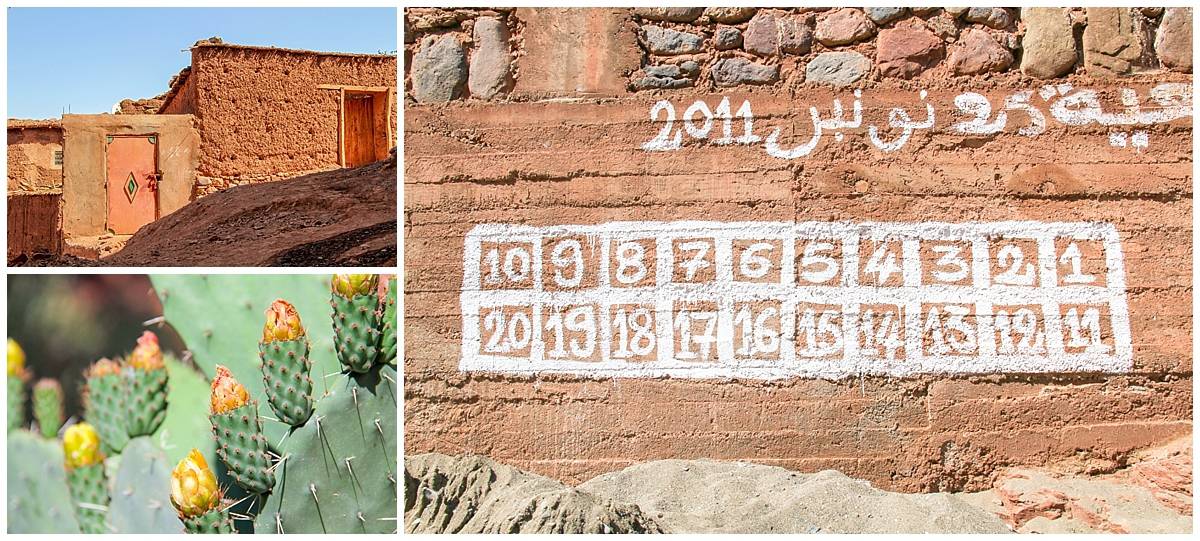
The Timeless Tourist Brainteaser
This village dreams of more tourism
I don’t want more people to come here, for there’s no way it could stay the same.
I picture these alleyways clogged with tourists. Heaving with backpacks. Brandishing menus in English and suffocating the silence with brash, loud voices. I see the landscape daubed with concrete, a funicular scarring up the peaks. Everything turning into everything else.
Perhaps it won’t come to that.
Perhaps it’s for the best.
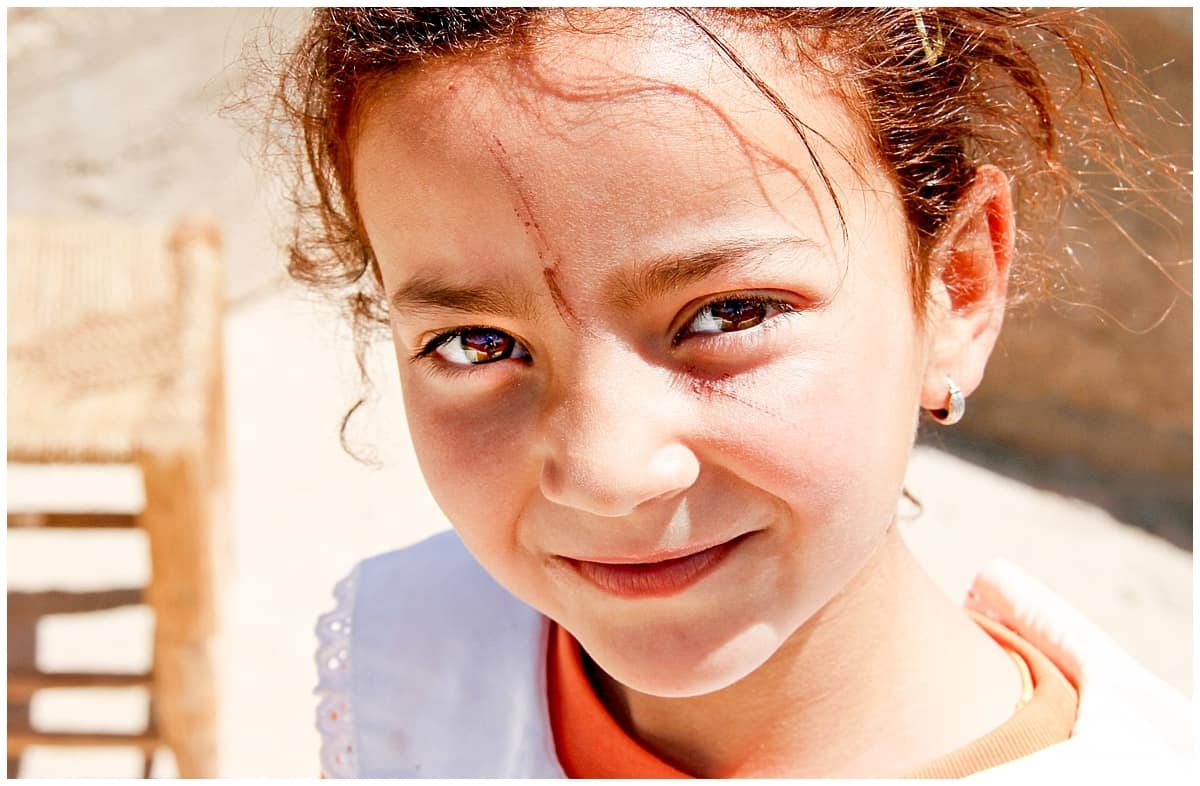
And after all, who am I to dash the dreams of those who live here and those who want to come? We can’t all climb mountains – as my own aching limbs remind me. Many do not want to stay living in the past.
I have been lucky, so tremendously lucky, to share brief moments like this around the world.
Through tea, through hikes, through writing and photography, I have been able (cough, ahem, excuse me for a moment) to follow my dreams.
As my legs tumble down the steep slopes of the Atlas, overtaking goats as well as common sense and reasonable speed, I reach the obvious conclusion.
Ok, make that two of them.
Firstly, that everyone should dream as much as they like.
And second of all: that you should never skip breakfast before hiking to face the gods.
Where is the Ouirgane Valley?
The beautiful Ouirgane Valley lives in the High Atlas Mountains in the heart of the Toubkal National Park. While many day trippers from Marrakech head to the closer Ourika Valley, Ouirgane is at that sweet spot. Far enough away to secape the crowds but not so remote that you’ll struggle as a foreigner. You can still find hotels and guest houses, local guides and a friendly welcome.
How to Get to Ouirgane
Most fly into Menara Airport in Marrakech (RAK) and then either join a group or hire a car and drive up to Ouirgane.
Highlights Near Ouirgane
THE TINMEL MOSQUE / Situated in a stunning location just one our south or Ouirgane, the Tinmel Mosque is one of only two in Morocco that allows non-Muslims to enter. It was built in 1156 to commemorate the founder of the Almohad dynasty and is also now popular with day trippers from Marrakech.
IMLIL VILLAGE / Around the same distance away lies Imlil, a picturesque village. You can hike if you have two or three days and energy spare or drive via Asni and pop into the market if it’s a Saturday. Look out for great views around half way up the valley. Imlil features heavily in the book of the same name by writer James A. Miller, published in 1984 and which debates the problems and prospects of people living in the Atlas mountains.
TIZI N’TEST PASS / The 2,092m high point of the Tizi n’Test pass rewards those who can withstand slow and twisty journeys without fear. It’s best completed in a 4 x 4 with a strong stomach but if you have one of those, then the views are worth it.
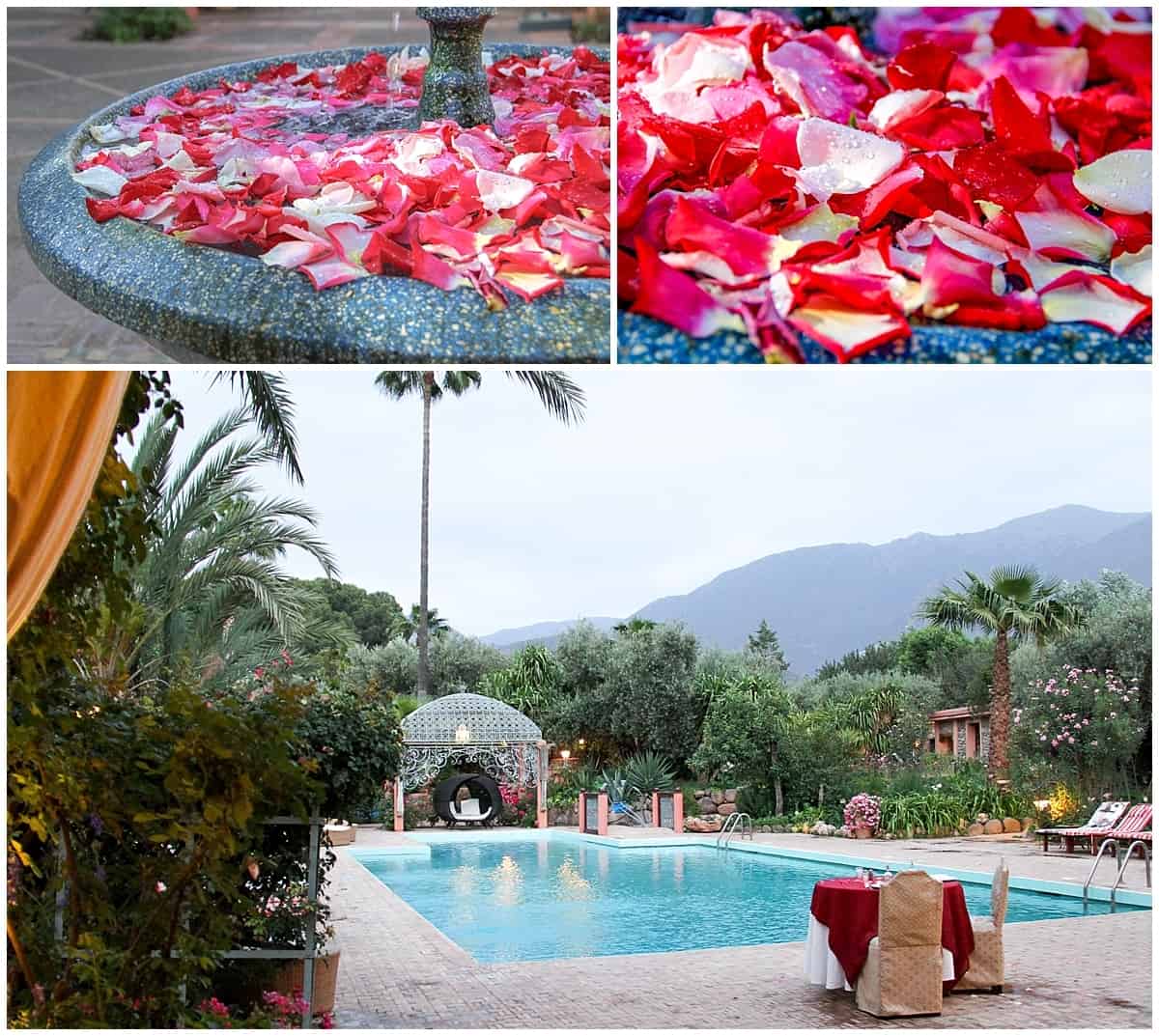
Where to Stay in Ouirgane Valley
La Roseraie is a beautiful, peaceful hotel with a stunning central swimming pool and lounge area with a Moorish terrace that overlooks the mountains where breakfast is served.
Staff are helpful and professional and the food – which carries a range of British and Moroccan dishes – is of a consistently high standard. Rooms are spacious, if a little on the plain side, with plenty of spaces for reading among the rose trees. La Roseraie also helps arrange private local guides to make hiking through the Atlas Mountains easier.
Don’t miss the free welcome tea and try to stay for a few nights if you can to make the most of the peaceful surroundings.
Bliss.
- Alternatively, try staying in a traditional riad like the Riad Diwane.
Map of Ouirgane
Travel Tips for Morocco
- Check out our guide to driving in Morocco, complete with inside information for your Morocco road trip.
- Also, don’t miss our packing list for walking holidays – everything you need for a hiking trip.
More About Travel in Africa
- The best places to visit in Africa: how to build your bucket list
- Namibia and the oldest desert in the world
- The best beaches in Madagascar
- The highs and lows of driving in Morocco
- What you need to know about trekking Kilimanjaro
- Is it worth visiting The Gambia?
Disclosure – Lawrence of Morocco arranged the car hire and complimentary accommodation at La Roseraie. Hikes are available from the Roseraie on a guided basis (as above) or on your own – although the routes are not all that clear to follow if you decide to go solo.

Breathtaking photography! I would love to hike the Atlas mountains, looks and sounds like a great adventure. Thank you for such a well written article about the adventure!
You’re very welcome – such a beautiful part of the world and perfect for hiking!
Thanks for the post. I haven’t been to Morocco yet, although it is on my bucket list. Your photos are beautiful! Maybe next year I’ll plan a trip there. We’ve hiked in some gorgeous places. We travelled to St Lucia last year and did the Gros Piton Trail – a tough climb, but totally worth it.
Ah, I flew over St Lucia once and it looked unbelievably beautiful. I really found it hard to believe such a place could exist!
I’d highly recommend hiking in the Atlas Mountains. The landscape is so striking but there’s also such a range of routes to suit most abilities. Plus, I have a soft spot for the food. And the fragrant orchards you walk through. And the people… Can you tell I’m a fan? ;-)
I love reading your post! The way you write is so descriptive and personal that it’s so easy to put myself in the situation you’re describing.